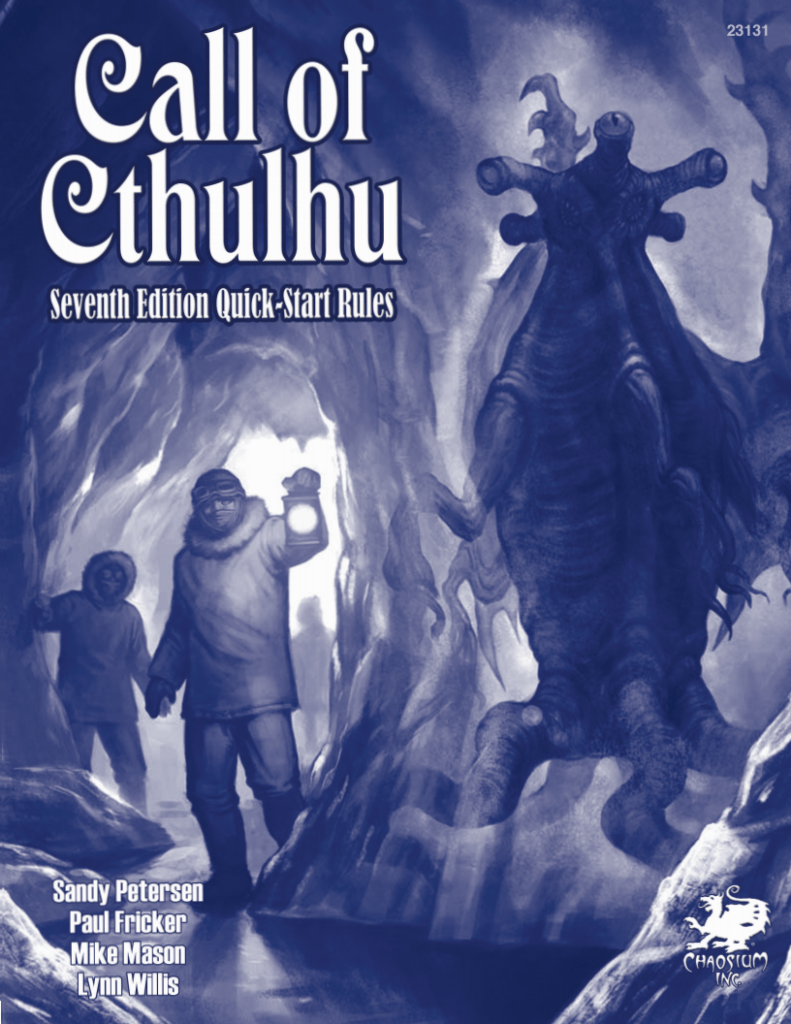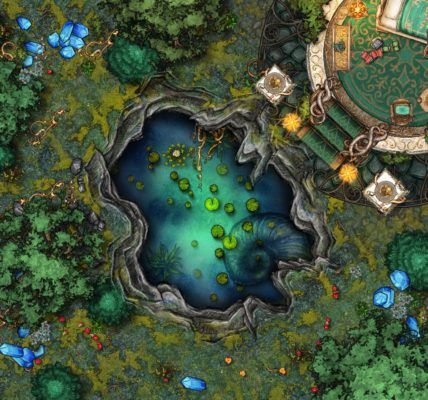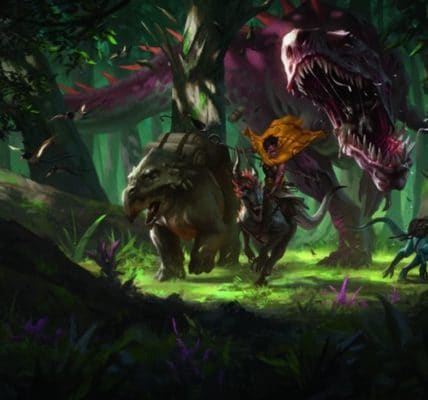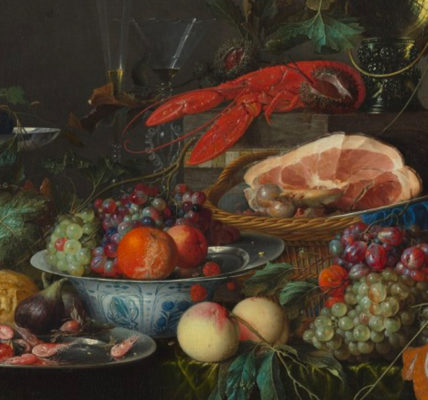It’s been a long time since Black Monk – polish publisher – has openly admitted to being the high priest of Cthulhu, and has stolen from our purses (in the background the rustle of an empty purse) over a million zlotys on the portal wspieramto.pl. Thanks to this fundraiser, everyone could get greatly published textbooks for the Call of Cthulhu, not to mention the additional printed materials in pdf.
It’s safe to say that the game – licensed from Chaosium Inc. started a revolution in publishing RPG in Polish. You didn’t have to wait long to be able to play Warhammer 4 edition released by Copernicus Corporation or Dungeons and Dragons 5 edition from Rebel. Not to mention the translated next edition of the Vampire: Masquerades or less known titles like Blades in the Dark or Polish Agony.
Nowadays, one of the important elements of the RPG promotion is the system quickstart, which is a very shortened version of the rules with a description of the gameplay convention and an introductory adventure. Black Monk (or Chaosium for English version) provides the appropriate file in pdf format for free (joyful rustling of onion shells in a pouch), which allows you to easily check what’s going on with all this insanity, myths and Secrets.

Recently, I managed to lead the adventure from the starter twice, and I would like to present some ideas for the Secret Keeper (MG) that can improve the adventure. They will facilitate the game especially new in RPG, as well as new in CoC – also taking into account that the adventure should be available for just one session. The adventure should take 4-7 hours, along with a quick character creation (depending on the experience of players and MG). Note: spoilers!
- Defining the convention in which the game will take place: it is worth discussing beforehand with the whole team that there is rather a climate of horror, mystery, hats, courtesy, and probably also prohibition – in general ’20 – ’30 After all, players are people, and fighting is not everyday. It will be helpful when you have played for instance DnD for months.
- It is worth determining when creating heroes, whether they know each other and to what extent – it’s a shame to waste time on gaining standard trust during this adventure.
- Researcher’s wealth level: should be similar. Excessive stratification makes it difficult to assume that the teams know each other and will work together (for beginner teams it is the best start to the adventure). A comparable level of wealth (rather around 35-45) will help solve the case in a similar way. If one of the players is very rich, he may want to do everything? with money.
- The right music for different scenes: calm music specific to visits to offices, silence in the library, classic horror in the house itself, but also dynamic music during e.g. combat. In the rest of the game, the hours of compilation of popular music from the ’20 – ’30 work well.
- At least one distinctive feature for each NPC.
- Handouts for players that are best printed: I suggest you delete the help number. This may slightly hinder player research, but we will avoid situations where players know that they lack help, e.g. number 4.
- At some point, investigators find the book of Liber Ivonis. As described in the starter, it will take at least 3 hours to read. It is worth determining what the book roughly contains. The players asked about it every time, and it’s nice to have something ready in this topic.
- Corbitt Diaries are also in the hands of the players. Written in English, each time viewed by the characters. Here, it is also worth determining in advance what they contain to avoid unnecessary improvisation – these may be various filthy thoughts, bloody experiments with the use of a dagger (helpful for later use by the heroes of the dagger), descriptions of meetings with various people, rituals, etc. Players asked also about the dates on which the diares were created. I suggest giving an answer based on the years of Corbitt’s life (see materials), but let the diaries also have entries after Walter’s official death (the year must be set depending on the years in which one is actually playing). The moment when the player realizes that something does not fit here is very valuable and important – you can be tempted to even a small roll on Sanity and withdraw 1 or 2 Sanity Points. I highly recommend this theme.
- Home power source: you can let players restore power including plugs / fuses. However, these will fail at the worst possible moment.
- Corbitt’s bedroom and bed attack: an idea came to me after the session, and it concerns a situation where only one player is in the room and is attacked / pushed out of the window. If there are no witnesses and the victim falls out / runs away, it is good to make the bed return to its place. When players return to the place, the situation will become more tense when the aggressive bed is in original place (and the room is unchanged, except for the hole in the window) – and the player’s words will not be belived.
- Corbitt’s bedroom and bed attack: if we necessarily want to send the hero out of the window, you can encourage him to approach the window sill. The investigator should be tempted by the situation when bloody spots appear in the room, and one of them will resemble the symbol of the Chapel of Contemplation (see handout number 9). The sign will accidentally appear on the wall under the window, and you player have to approach to see the details
- Corbitt’s Magic Dagger: If players have captured the dagger, they may not think about attacking Corbitt himself. If the fight goes hard for them, the dagger may start to behave strangely, e.g. warming or bleeding – it’s about suggesting that the item is active and maybe you can use it. If players do not show special interest in the blade that tried to puncture them, it might be worth adding something interesting to the item description, e.g. a suspicious mark, a red stone, etc.
- Fight with Corbitt, and his spell Domination: it’s probably one of the heaviest parts of the scenario, if we want to create a fight that is not just beating an opponent (like some troll with an axe). It is worth thinking about what may be happening in the hideout of Corbitt, not so much to make the fight more difficult (but you can, if the team is more brave or has a strong weapon), but to make it more amazing and closer to horror. Coolness, refraction, strange sounds, incomprehensible language, paralysis of limbs, dark visions, an attempt to take the dagger from the hero (if he has it), depending on what the players are interested in. There is a good chance that someone will stay in the basement forever. Finally, the Domination spell that Walter can use: unfortunately I have not enough time to describe the situation and the feeling of the character associated with the loss of will, which resulted in a little misunderstanding of the situation by the player. It’s worth describing the situation well, suggesting losing control of the hero so that the player knows what’s going on and why he needs to test his POWER.
- The adventure from the starter, although uncomplicated, allows you to check the main assumptions of the mechanics of the Call of Cthulhu and feel the atmosphere of mystery and horror. I also recommend playing it even as a converted introduction to a longer game, or as a 0 session.






